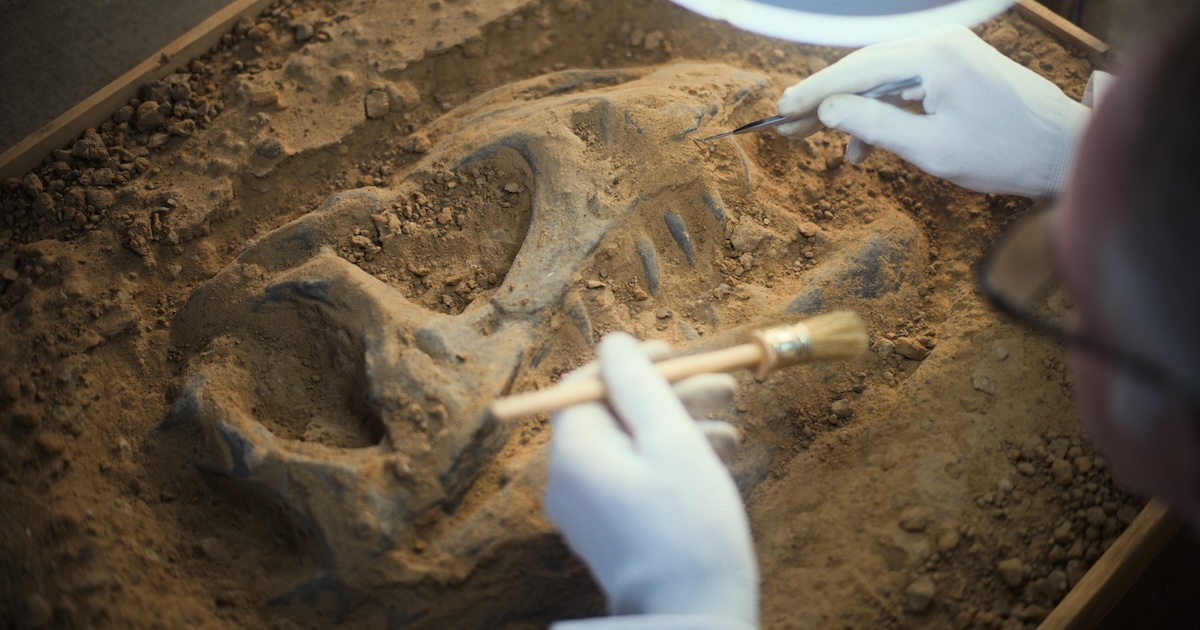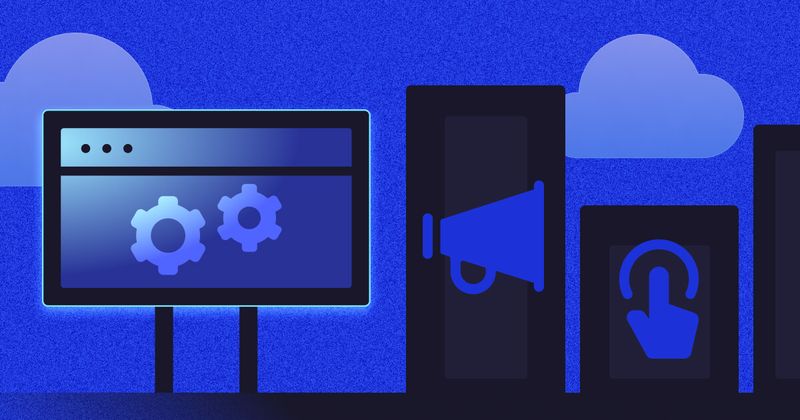How AI Is Rewriting the Rules of Marketing (and Why Human Strategy Still Wins)
.jpg)
Key Takeaways
- AI adoption is universal, but strategic use is rare: Nearly 60% of marketers report their industry is flooded with generic "AI slop" that erodes brand differentiation and consumer trust
- Search is evolving from SEO to AEO: AI search platforms like Google SGE and ChatGPT Search are reshaping discoverability, rewarding genuine expertise and original thought leadership over keyword optimization
- Human creativity is your competitive edge: As AI tools become universally accessible, uniquely human capabilities—empathy, nuance, emotional intelligence—become more valuable, not less
- The hybrid approach wins: Successful agencies use AI to amplify human creativity, not replace it—combining automation for efficiency with human judgment for strategy and authenticity
Marketing in 2025 – and especially heading into 2026 – looks nothing like it did even two years ago.
Artificial intelligence has completely changed how every industry engages with technology. It’s gone from an experimental edge into an operational necessity far faster than nearly any other medium.
And if you walk into any marketing agency today, you'll find teams armed with all the latest tools – ChatGPT, Gemini, Claude, and a dozen others – all promising to “revolutionize” their client’s content creation, campaign optimization, and audience targeting.
But here's the problem: every marketer is using AI tools. But few know how to use them effectively.
The result? A digital landscape (yeah – that digital landscape) is now flooded with what industry insiders are calling "AI slop". You’ve seen it – the generic, indistinguishable content that sounds like it came from the same prompt template.
Nearly 60% of global marketers say their industry is drowning in this type of content, and reader trust drops by almost 50% when audiences suspect an article was AI-generated.
At Caffeine Marketing, we believe AI should amplify human strategy, not replace it.
The competitive edge in 2025 doesn't belong to agencies that use the most AI tools. It belongs to those who know when to let AI work and when human creativity must take the lead.
Why "AI Hype" Has Replaced "Marketing Strategy"
We’ve seen it ourselves – the mad rush to automate everything. Almost every client we work with is trying to implement AI tools at breakneck speed, often without the strategic framework to use them properly.
In one of our recent team meetings, someone brought up the "AI slop effect." They described it perfectly: when everyone uses the same AI prompt templates, everyone sounds the same.
Brands lose their distinctive voice. Content becomes interchangeable. Differentiation evaporates.
The data backs this up. Reader trust drops by up to 50% for suspected AI-generated content, with 14% lower willingness to pay premium prices.
Why? Because when consumers can't distinguish your brand from your competitors (because you're all using the same AI-generated content), you've commoditized yourself.
But before we start sounding like contrarians, hear us out:
The problem isn't AI itself – it's the thoughtless application of AI without strategic oversight.
Companies are treating artificial intelligence like a replacement for human judgment rather than what it actually is: a powerful tool that requires expert direction.
True marketing advantage in 2026 is likely going to come from those who combine AI precision with human insight. The brands who will win aren’t those who just “use the most AI” – it’s those who use the right AI tools and their human expertise strategically.
How We’re Using AI In Our Marketing Efforts
At Caffeine, we've developed a framework we call "AI clarity" – using automation where it helps, and strategy where it matters most. Here's a bit on how we actually integrate AI into our workflows:
Research & Strategy: AI as Creative Partner
We use tools like ChatGPT, Gemini, and Claude for ideation and competitive research.
But every AI-generated insight passes through our human strategists for an expert’s eye. We understand brand context, market nuance, and audience psychology. The AI provides the raw material; our team provides the editorial judgment.
To put it another way, AI is a hammer – but human intelligence is still the screwdriver. Both tools are essential, but you need to know which one to use for each task.
Content Creation: Speed with Control
There are plenty of excellent AI tools on the market now – Kleo, Descript, and Opus Clip – that accelerate production timelines.
These tools handle time-consuming tasks like video editing, transcript generation, and content repurposing. But we maintain strict brand control at every stage.
For our clients, this means faster turnaround without sacrificing authenticity. AI handles the rote mechanical work; our team then follows up to make sure every piece of content reflects the client's unique voice and strategic positioning.
SEO Optimization: AI-Powered, Human-Led
We won’t deny it – we’re using AI for entity optimization, natural language modeling, and technical SEO analysis, among many other daily tasks.
AI can process massive datasets and identify optimization opportunities human analysts might miss. But the overarching SEO strategy – what topics to pursue, what audience needs to address, what brand story to tell – remains firmly human-led.
The key distinction here?
AI helps us execute strategy faster, but it doesn't replace the strategic thinking itself.
From SEO to AEO: Building Authority in the Age of AI Search
The biggest shift we’ve been seeing lately? Search behavior is fundamentally changing.
Platforms like Google's Search Generative Experience, Perplexity, and ChatGPT Search are rewriting what SEO means for brands. Traditional keyword optimization alone won't cut it anymore.
Remember, AI only knows as much as we tell it. Therefore, AI search systems reward genuine expertise and authentic human insight, not keyword manipulation.
This shift demands a new approach – what some in the industry are calling Answer Engine Optimization (AEO) or Generative Engine Optimization (GEO).
AI referrals to top websites spiked 357% in June 2025 via generative search platforms. The brands capturing this traffic are those creating content that demonstrates real expertise and provides genuine value.
How Caffeine Future-Proofs Content for AI Discoverability
Here are just a few of the ways that we’re helping clients build authority that AI systems recognize and reward:
Schema Optimization: We implement structured data that helps AI understand content context, making it more likely to be featured in AI-generated answers.
Original Thought Leadership: AI systems prioritize content that demonstrates unique expertise. We help clients develop proprietary frameworks, case studies, and insights that can't be replicated by competitors using the same AI tools.
Multimedia Integration: Video, blog content, and transcripts work together to reinforce key messages across multiple formats. This multimedia approach signals depth and authority to both traditional search engines and AI systems.
The key here isn’t to try and “game” the AI search system. It’s too new, and there’s too much we still don’t know about the long-term impacts of AI search on brand visibility.
But what we can do is help make sure our clients are building genuine expertise that AI systems recognize as valuable.
What Smart Agencies Are Doing Differently
The most successful marketing agencies in 2025 share common practices that separate them from competitors still treating AI as a replacement for strategy:
Blending Storytelling and Automation
Leading agencies use AI to handle production bottlenecks while investing more time in strategic storytelling. They're asking better questions:
- What makes our client's story unique?
- What emotional connection drives their audience?
- What transformation do customers experience?
AI can't answer these questions (yet!) but it can free up the time needed to explore them properly.
Training AI on Brand-Specific Data
Rather than using generic AI outputs, smart agencies are training AI tools on brand-specific data. Think data from previous campaigns, brand guidelines, customer research, and competitive analysis.
This creates AI assistance that actually understands brand context rather than generic marketing platitudes.
Building Internal AI Playbooks
Top agencies document exactly when and how they use AI tools. They create frameworks that ensure consistency while allowing creative flexibility. These playbooks define which tasks AI handles independently, which require human review, and which remain purely human-led.
At Caffeine, we've developed similar systems. Our team knows when to reach for AI tools and when to step back and let human creativity drive the process. This isn't about following rigid rules – it's about developing the judgment to use each tool appropriately.
Human Creativity Is the New Competitive Edge
Here's what the AI-first evangelists miss: artificial intelligence lacks emotional intelligence.
t can't understand the subtle psychological triggers that drive customer decisions. It can't empathize with a frustrated customer or recognize when a campaign is technically correct but emotionally tone-deaf.
Human empathy, tone, and nuance remain marketing's most valuable commodities.
As AI tools become universally accessible, these uniquely human capabilities become more valuable, not less.
Companies blending human creativity with AI tools achieve higher engagement and brand loyalty than those relying on AI alone. The data is clear: audiences can tell the difference, and they reward brands that maintain human authenticity.
At Caffeine, we use AI tools to save time on mechanical tasks so our team can invest more energy where it creates real value – in strategy development, creative conceptualization, and relationship building. These are the areas where human expertise remains irreplaceable.
The Future Belongs to Hybrid Thinkers
The best marketing in 2026 and beyond won’t be AI-generated.
We like to say it's AI-empowered.
The future belongs to hybrid thinkers who understand both technological capabilities and human psychology, who know which tasks to automate and which require human judgment.
The marketing agencies that thrive won't be those that resist AI or those that blindly embrace it.
They'll be the ones that develop sophisticated frameworks for combining artificial intelligence with human insight.
They'll understand that AI is extraordinarily powerful for certain tasks and entirely inadequate for others.
At Caffeine Marketing, we help brands navigate this complexity with clarity, creativity, and confidence.
We don't chase AI hype – we implement AI strategy. We don't replace human insight with automation – we amplify it.
If your marketing hasn't evolved for the AI era, it's time to rethink your strategy. The tools have changed, the tactics have shifted, but the fundamental principle remains: great marketing requires understanding human behavior, building authentic connections, and telling stories that resonate.
AI can help you do all of these things faster and more efficiently. But it can't do them for you.
FAQ
Should my company be using AI tools for marketing?
Most likely, yes – but with strategic oversight. AI tools can dramatically improve efficiency for tasks like content repurposing, research, data analysis, and production workflows. The key is implementing AI with clear guidelines about when it works independently, when it requires human review, and when tasks should remain entirely human-led.
How do I avoid creating "AI slop" content that sounds generic?
Here are three essential practices:
- Use AI for ideation and first drafts, never final outputs.
- Train AI tools on your specific brand voice, previous content, and unique positioning rather than using generic prompts.
- Ensure every AI-assisted piece passes through a human editor who understands your brand strategy and audience psychology.
The goal is using AI to accelerate your process, not replace your perspective.
What's the difference between SEO and AEO (Answer Engine Optimization)?
Traditional SEO focuses on ranking in search engine results through keyword optimization and technical best practices. AEO (Answer Engine Optimization) focuses on being selected by AI systems like ChatGPT, Perplexity, and Google's Search Generative Experience when they generate answers to user queries.
AEO prioritizes demonstrable expertise, original insights, structured data, and comprehensive topic coverage over keyword density. Both approaches matter in 2025, but AEO is increasingly critical.
Will AI replace marketing jobs?
AI will replace certain marketing tasks, not marketing jobs. Mechanical, repetitive work – such as reformatting content, basic data analysis, initial research – will increasingly be automated.
But this shift frees marketers to focus on higher-value activities: strategic thinking, creative conceptualization, relationship building, and brand stewardship. The marketers thriving in this environment are those developing hybrid skills that combine AI tool proficiency with uniquely human capabilities like empathy and strategic judgment.
How can I tell if an agency really understands AI or is just riding the hype?
Ask about their AI implementation process! We don’t hide it – and agencies with genuine AI expertise can articulate which tools they use for which specific tasks, how they maintain brand consistency across AI-assisted content, what their review and approval process looks like, and more.
Be wary of agencies promising AI will "solve everything" or those claiming they don't need AI at all – both extremes suggest a lack of sophisticated understanding.
What should I prioritize first when implementing AI in my marketing?
Start with time-consuming, repetitive tasks that have clear quality benchmarks: content repurposing, basic research and data gathering, social media scheduling, and initial draft creation. These areas deliver immediate efficiency gains with manageable risk.
Avoid starting with high-stakes, brand-defining work like core messaging, major campaign concepts, or sensitive customer communications. Build your AI proficiency and governance framework with lower-risk applications before expanding to more strategic uses.
Ready to build an AI-powered marketing strategy that actually works?
Contact Caffeine Marketing to schedule your AI Marketing Audit and discover how to blend automation with authentic human strategy.
Contact Us Now





